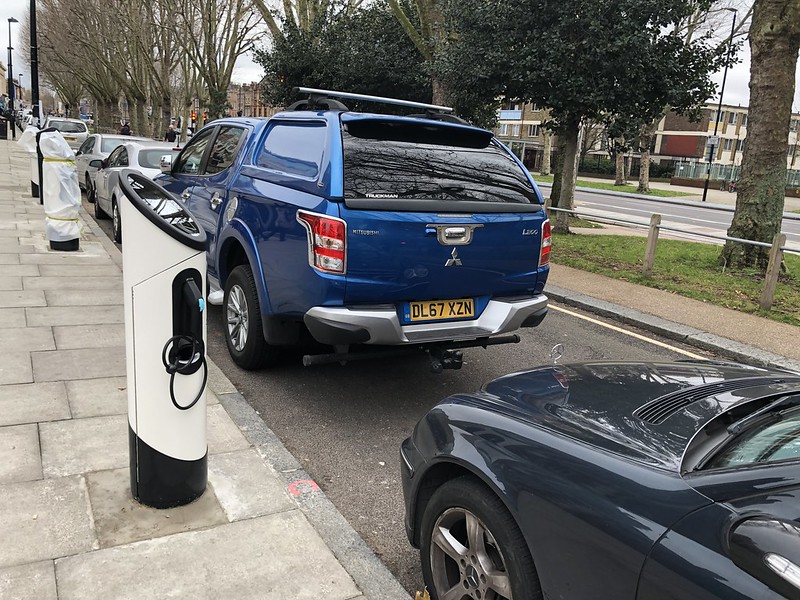Are Douyin and TikTok the Same? | What’s on Weibo – China’s Netcasting Services Association (中国网络视听节目服务协会), an association directly managed by the Ministry of Civil Affairs, issued new regulations that online short video platforms in China should adhere to. One of the new guidelines requires all online video service providers to carefully examine content before it is published. Tech China reports that the new stipulations require that all online video content, from titles to comments and even the use of emoticons, has to be in accordance with regulations, which prohibit any content that is ‘vulgar,’ is offending to the Chinese political system, puts revolutionary leaders in a negative light, or undermines social stability in any way – interesting dive into the differences between TikTok and Douyin which seem to run off separate systems. We also see some crossovers, for instance similar ad formats on both Douyin and TikTok. Another area of connectivity is the similar level of censorship on TikTok that is rolled out on Douyin. This is creepy, but makes both Douyin and TikTok brand safe, which is particularly attractive to mainstream advertisers. The big question for me is whether TikTok provides direct access to its data to the Chinese government like Douyin would be obliged to do. More related content here.
Snap Business | Apoposphere – how the apps you use impact your daily life and emotions – usual caveat emptor considerations apply. Sample size is 1,005. Research is sponsored by Snap
Facebook culture described as ‘cult-like’, review process blamed | CNBC – can’t work out if there is a lot of employee adulting required or if the culture is reminiscent of peak Microsoft circa 1995
Major WeChat trends brands can’t ignore in 2019 | Digital | Campaign Asia – WeChat and global traveller connection particularly important
Major WeChat trends brands can’t ignore in 2019 | Digital | Campaign Asia – WeChat and global traveller connection particularly important
The perfect plan for the couch potato | Trendwatching – Bilibili and Ele.me partner to provide hybrid content streaming and free food delivery
Brands should give up control to reach Gen Z | Creativepool – this says more about how marketing hasn’t changed over the past 15 years than gen-Z. This tells me that brands and agencies haven’t been listening. It also tells me that I can recycle decade old platitudes and essays with a Ctrl+F gen-Y and Ctrl+V gen-Z
Samsung’s Supreme Copyright Spat | The Daily | Gartner L2 – Chinese consumers weren’t fooled by the “Supreme” partnership, eviscerating Samsung on social media following the launch. Its Greater China digital marketing manager responded to the uproar by posting on his Weibo account that the decision to work with Supreme Italia was made because it had obtained the authorization to use the brand in China. Samsung later backtracked as he deleted the post and Samsung’s official Weibo account announced it was “re-evaluating” the partnership – gosh I can feel the heat from the burn on this from half way around the world…
Apple’s China Problem : 12 Reasons – Counterpoint Research – covers more of the points that I would have hit
Move over, millennials and Gen Z – here comes Generation Alpha | Society | The Guardian – is defining generations useful? “You have to be careful about it,” says Karen Rowlingson, professor of social policy at the University of Birmingham. “But we shouldn’t ignore generational divides. Younger people are, on average, facing many more challenges. And, certainly, inequalities within that generation [millennials] are greater.”
Apple is putting iTunes on Samsung TVs – The Verge – makes you wonder about the future of the Apple TV?
Should we think of Big Tech as Big Brother? | Financial Times – That also used to be the view of Sergey Brin and Larry Page, Google’s founders, who presented a paper in 1998 highlighting the perils of advertising. “We expect that advertising-funded search engines will be inherently biased towards the advertisers and away from the needs of consumers. This type of bias is very difficult to detect but could still have a significant effect on the market,” they wrote.
Internet rightists’ strategy of provocation gaining traction in Japan | The Japan Times – Japan starts to see western style internet wars with personal attacks (paywall)
Chinese coffee startup Luckin: We won’t be the next ofo | HEJ Insight – interesting read that reminded me a lot of the reporting on the original dot com boom in the UK and US
Amazon says 100m Alexa devices sold – usage figures remain a mystery | The Drum – and in the second part of the headline is the rub
Masayoshi Son wants Arm’s blueprints to power all tech – Armed with a crystal ball | The Economist – I have a lot of respect for Son-san but this reads like bubble-level BS. There are so many variables such as China 2025 that make this inadvisable. Secondly its not like ARM is the only micro-computer core design that’s low power and available. Thirdly, we’ve hit peak smartphone, other devices won’t offer the same business opportunity
Opinion | Is This the End of the Age of Apple? – The New York Times – This is a big issue not only for Apple but also for all of tech. There is not a major trend that you can grab onto right now that will carry everyone forward. The last cool set of companies — Uber, Airbnb, Pinterest and, yes, Tinder — were created many years ago, and I cannot think of another group that is even close to as promising
Understanding the Emerging Era of International Competition: Theoretical and Historical Perspectives | RAND – great read
Startup founders say age bias is rampant in tech by age 36 – There’s a scourge in tech that apparently runs even deeper than sexism or racism: ageism. In a wide-ranging survey of US startup founders polled by venture-capital firm First Round Capital, 37% said age is the strongest investor bias against founders, while 28% cited gender and 26% cited race.
The liberating thrill of a slender book | Quartz – Let’s keep this short. We’re busy. We want to read but don’t have time for deep dives, and that applies to books as well as articles
China says its navy is taking the lead in game-changing electromagnetic railguns – Chinese warships will soon be equipped with electromagnetic railguns that fire projectiles with “incredibly destructive velocity,” and that the underlying technology was based on “fully independent intellectual property,” rather than designs copied from other nations.
Burberry Zhao Wei and Zhou Dongyu CNY Campaign | HYPEBAE which ended up to be a bit of a mess: Why Burberry’s Chinese New Year campaign doesn’t quite hit the spot | The Drum

